That is a loaded question if I have ever heard one (or read, in this case). When a motor goes down, the pool’s owner has a hill of decisions to make in a short period. Depending on time of year, he/she may only have a day or two before the pool water begins to turn.
The main question an owner of a newly failed motor asks people like me is, whether they should replace the motor or have it rebuilt. Both routes have their pros and cons and I’ll walk you through my thoughts and at the end I’ll give you my general verdict on the matter.
Re-build it and they will come…
Rebuilding the motor is definitely the cheaper of the options; with a lower upfront cost, is it actually worth it? The answer lies in your mechanical abilities and how long you plan on keeping the pump.
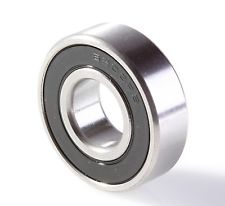 When we talk of “rebuilding” motors that is generally a reference to replacing the shaft bearings. These bearings are the sealed round discs that suspend the shaft within the motor. They allow for a smooth, virtually friction-free, and quiet spinning of the shaft. That is why the telltale sign of bad bearings is a loud screeching sound equivalent to a freight train slamming its breaks. The ear drum shattering racket is annoying to you and your neighbors. Expect a few complaint notes taped to your door or a friendly driveway discussion if bad bearings are left unchecked.
When we talk of “rebuilding” motors that is generally a reference to replacing the shaft bearings. These bearings are the sealed round discs that suspend the shaft within the motor. They allow for a smooth, virtually friction-free, and quiet spinning of the shaft. That is why the telltale sign of bad bearings is a loud screeching sound equivalent to a freight train slamming its breaks. The ear drum shattering racket is annoying to you and your neighbors. Expect a few complaint notes taped to your door or a friendly driveway discussion if bad bearings are left unchecked.
The process of replacing bearings is laborious or in simple terms a real pain in the neck. Electric motors are solid hunks of metal meant to withstand heat and the rigors of outdoor installation. The task of disassembling the motor is naturally a very involved process and over the capabilities of some pool owners.
Besides the bearings, some of the tools needed for a rebuild are not ones usually found in your standard toolkit:
- Bearing Puller – Aptly named, the bearing puller permits the removal of the bearing without excessive force or hammering that could cause damage to the shaft.
- External Ring Pliers – Removes the front and rear bearing snap ring.
If you have to buy these tools, that could set you back $30. Plus the cost of bearings, you may be in $80 on tools before the rebuild starts. Tools that are also used in bearing replacement are a hammer, piece of pipe and open ended socket wrench. If any of these are not on hand, add that to the $80 dollars already on the tab.

After all the buying there is still the matter of putting the motor back together. If you are interested in the process, take a look at our pool pump motor bearing replacement guides: Part 1 and Part 2. For the untrained person, the task could take a couple of hours after trial and error that hopefully does not damage the motor further.
The simple solution is to have a professional do the job. Trained repairmen can finish the job in about a half hour to an hour of solid work. The downside is the price which will likely fall in the price range of $90 and up. The good part about hiring out the job is knowing it will be done correctly and if it is not then you have someone else to blame besides yourself. Just kidding.
Are you keeping the pump for long?
Ask yourself, how long do I plan on keeping this pump? The answer varies because you may be planning on repairing the current motor so you can limp to the end of the season. This means you can put off worrying about long term solutions until the coming spring. Or, you may be planning to sell your home and do not expect to be fiddling with the pump and its issues longer than a few more months.
I bring up this point because rebuilding a motor is basically putting a bandaid on an already infected wound. The bandage may stop it from further infection but it will not cure the already festering problem. The only cure for a bad motor is a brand new motor. My suggestion is do not pay twice and replace the motor.
“Motorin’ what’s your price for flight…”
I have heard many variations of “I just want to replace it and be done with it” from frustrated pool owners over the years. When the pool pump is down, so is the fun level and no one likes that.
The good part about getting a brand new motor is just that, it is brand new. A fresh motor should last your pool for a few years and if maintained should not cause you any issues until the next time it is replaced. Unlike with a rebuilt motor, a new one comes with a 1-year factory warranty covering all manufacturer defects.
The downside of a brand new motor is the upfront cost. Motors vary in cost greatly but the most common single speed motors out there will range from $150 – 300. Hopefully, the pool owner can do the replacement themselves which will save a service call. If not, then that may be another $50 – 80 bucks added to the total. But keep in mind with these prices a brand new motor should put off more bills for a few pool seasons. A rebuilt motor will cost you the price of the rebuild now and then the cost of a brand new motor later.
Do not pay twice, just get the new motor and save the trouble.
Thank you for letting me rant about motors. If you have any questions about replacing a pool motor, take a look at our pool pump motor replacement how to guide. Or, call one of our techs who will gladly answer any of your questions.
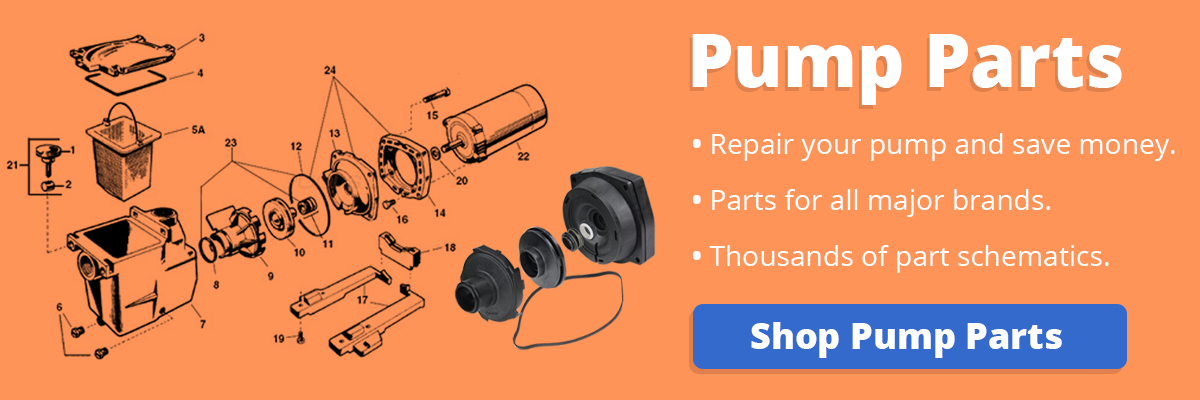
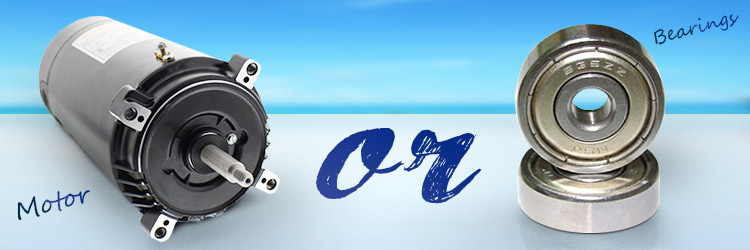
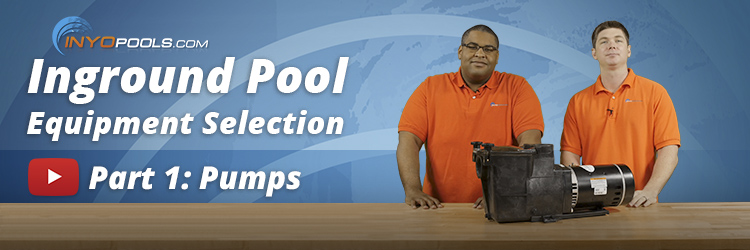

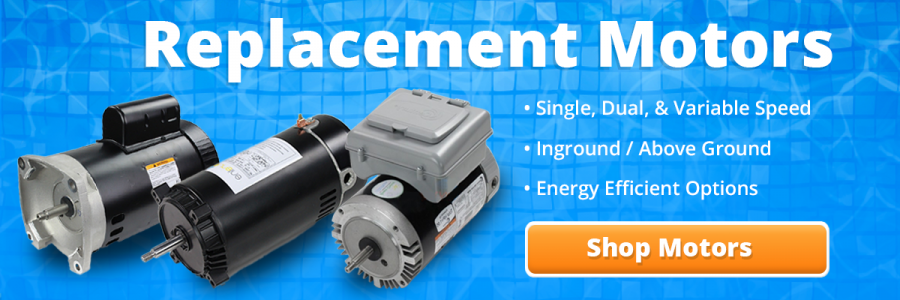
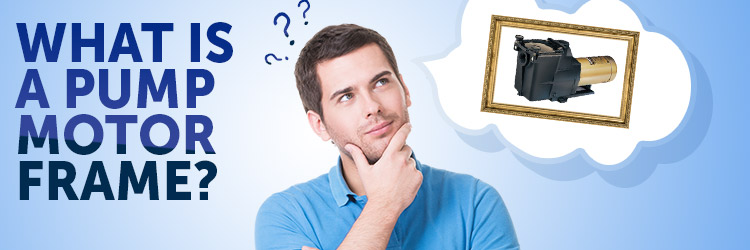






If you can do ANY diy repair, then you can do a bearing change. Bearing pullers aren’t expensive and ridiculously easy to use. The job is not difficult. There are plenty of YT videos. A new 2Hp 2 speed motor isn’t cheap, generally well over $500.00. I will swap out the bearings until the actual motor components fail. And I keep one spare motor on hand with fresh bearings. When the one in service needs a rebuild, I swap them out and rebuild at my leisure. It’s actually an enjoyable task when you aren’t under the gun to get it done right this second. A set of bearings is way cheaper than a motor!
Thank you
I usually prefer to replace a motor with bad bearings, not just because of the aforementioned extra costs involved with getting all the tools together and the labor, but if you think about all the time the old motor has started, run, heated up, cooled down, the field windings will have dried out & cracked the moisture proofing varnish & it won’t be able to take much more running during rainy periods before it just shorts out & is a toasted motor . It’s a used up motor & usually isn’t worth the cost & trouble to replace the bearings. Bite the bullit & put on a new one.
Thanks for the wise words, Mr Ward.
If a roommate took apart the motor, would it be best to replace it ?
What would cost of labor be to install a new motor ?
New motors are mass produced they will have good bearings in them , but not great bearings if one looks u can find all diff kinds of bearings . Example u take a pentair pump stator armature are fine But needs bearings. Put a set of full ceramic bearings in there and you have a rebuilt pump motor that will blow ANY new pump motor out of the water (no pun intended)
But aren’t they relatively expensive when compared to the standard bearing? If you have spent 40 bucks per bearing, is it really worth it?
yes they are costly cant deny that shop around and u will eventually find a decent price
lets weigh pros and cons (and im not the brightest bulb on the strand just look at my spelling but lets try to list a few
pros….
harder than steel with considerable less weight (messurable amount of less friction)
they pull less electricity to perform more rotations
maitnence free with noise
wheather its a frosty wintewr morning or a schorching summer day (not to mention when the
motor is running) steel contracs when it is cold expands when its hot and eventually starts to l
loose its integrity
ceramics size or shape wont change in these conditions
cons…..
cost
that was less noise
sorry thanx
We replaced our pump 2 years ago, and now, after 2 (short) Boston pool seasons, our pump is making noise again. After 10 years with the original pump motor, it seems that the bearings in new pumps are not as long-lived as they were not long ago. This matches the others’ experiences listed on various review sites. I don’t blame Inyo – we’ve had a very good experience here overall, and they’re limited by what the motor manufacturers are producing.
I hope not to buy a new $200 motor every 2 years. I’ll buy a replacement motor now and then start looking for high-quality replacement bearings to be repair my current motor, to be ready for the next failure in another 2 years.
Learn how to spell, dork.
Anonymous insult. Nice. Brave, too.